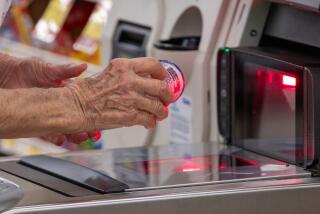Op-Ed: Don’t Uberize California’s homemade food movement
In 2012, I teamed up with a bread baker, urban farmers and home-based food makers to advocate for the California Homemade Food Act, a law that allows for the sale of homemade foods that are low-risk and do not require refrigeration, such as breads and jams. Thousands of new enterprises were formed or became legal under the act, many of them owned by women, immigrants and small-crop farmers.
The Homemade Food Act was a good start, but it was limited. Many more homemade products, including more-perishable foods, would be safe to sell from our home kitchens with appropriate oversight.
Now a proposed expansion of the law, Assembly Bill 626, is making its way through the California Legislature, and you’d think I’d be on board. But this bill isn’t the product of bakers, home cooks and farmers, it’s backed by gig economy tech companies. It would allow sales of homemade meals through web apps that take a cut of cooks’ earnings.
AB 626 passed in the Assembly in January; it’s due for a Senate committee vote Wednesday. It shouldn’t get any further.
If AB 626 becomes law, the homemade food market would likely become dominated by big companies like Airbnb and Uber. The trajectory of these businesses is rapid growth fueled by venture capital and aimed at disrupting and then monopolizing a market. They disregard important public safety laws and worker protections by treating the workers as independent contractors. They could easily overwhelm the homemade food economy just as they have ride hailing, delivery services and vacation rentals.
Enter the Fray: First takes on the news of the minute from L.A. Times Opinion »
Food-system jobs are among the lowest paid in our society, but at least most food workers are employees who are entitled to minimum wage, overtime, workers’ compensation insurance, and other protections. If homemade food is dominated by gig economy tech companies, home cooks could end up working in situations where their net earnings are less than minimum wage. Companies such as Uber and TaskRabbit take 15% to 30% of the earnings of their workers. Margins are so tight for home cooks, they wouldn’t be able to survive.
Yes, we should have a more permissive homemade food law in California, and there’s nothing wrong with allowing web apps to facilitate it. But the Legislature should require that third-party web applications used to order and distribute the food must be owned and controlled by cooks and delivery workers, nonprofit organizations, or local governments — not by big technology companies.
This may sound heavy-handed, but longstanding California law already prohibits big food companies from operating farmers markets. Only nonprofits, governmental organizations and farmers themselves are allowed to run the markets; they exist to support growers and consumers, not middlemen.
Just as we don’t let Amazon, Walmart and Ralphs operate farmers markets in California, we shouldn’t let Uber Eats run our homemade food economy.
We can also learn from Austin, Texas, when it comes to incorporating web apps into a service economy. In 2016, Austin enacted safety regulations for ride-hailing services Uber and Lyft, causing both companies to decamp from the city. What emerged in their place was a remarkable flourishing of local ride hailing apps, including the nonprofit RideAustin and the driver-owned ATX Co-op Taxi. Both offer better pay for drivers along with the convenience of mobile phone apps. Such community-based alternatives could never compete with Silicon Valley tech giants.
Just as we don’t let Amazon, Walmart and Ralphs operate farmers markets in California, we shouldn’t let Uber Eats run our homemade food economy. Markets need basic regulations to avoid monopolization and to protect workers and consumers. AB 626 betrays the food movement for the benefit of Big Tech. The Legislature should reject it and instead work with food makers and community organizations on a more just approach to expanding the Homemade Food Act.
Consumers, farmers and cooks deserve better than the Uberization of homemade food.
Christina Oatfield is the policy director of the Sustainable Economies Law Center in Oakland. She once operated an underground restaurant out of her apartment.
Follow the Opinion section on Twitter @latimesopinion and Facebook.
More to Read
A cure for the common opinion
Get thought-provoking perspectives with our weekly newsletter.
You may occasionally receive promotional content from the Los Angeles Times.










